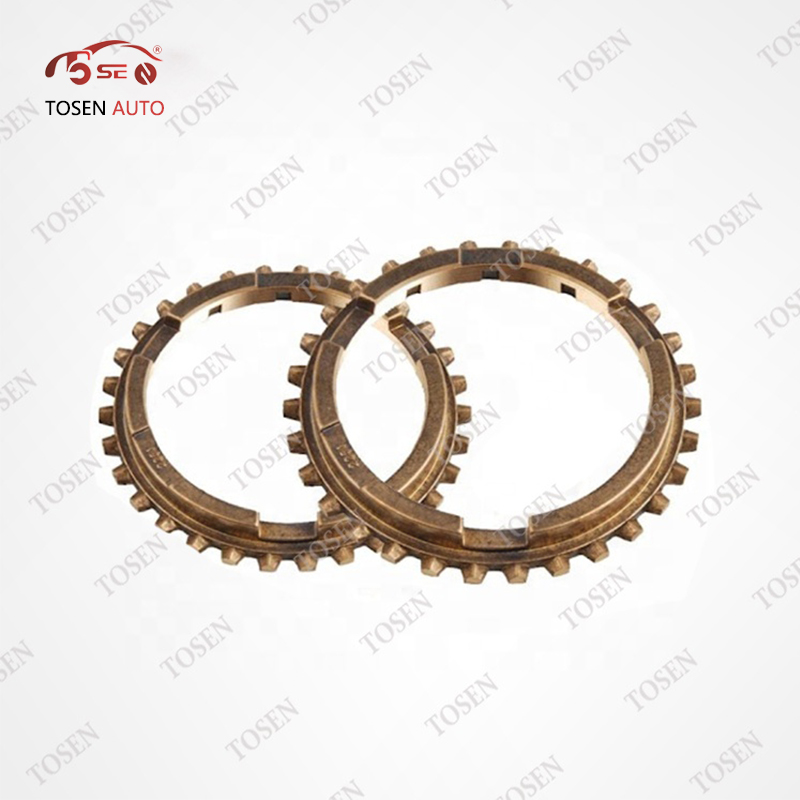In the world of automotive engineering, the terms gearbox and transmission are often used interchangeably. However, while they are closely related and sometimes refer to the same component, there are distinctions between the two. Understanding these differences is crucial for vehicle owners, especially when considering maintenance, repairs, or replacements.
A transmission is a mechanical system in vehicles that transmits power from the engine to the wheels. It adjusts the engine's output to provide a range of speed and torque outputs, allowing the vehicle to operate efficiently under various driving conditions. Transmissions can be manual, automatic, or semi-automatic, and they encompass all components involved in this power transfer process.
A gearbox is a subset of the transmission system. It specifically refers to the set of gears and their housing that alters the torque and speed between the engine and the wheels. In essence, the gearbox is responsible for changing the gear ratios, which in turn affects the vehicle's speed and torque.

| Aspect | Transmission | Gearbox |
|---|---|---|
| Definition | The entire system that transmits power from the engine to the wheels, including the gearbox, clutch, and other components. | A component within the transmission that contains gears to adjust torque and speed. |
| Function | Manages the overall power flow and gear shifting in a vehicle. | Alters gear ratios to control speed and torque. |
| Components Included | Gearbox, clutch, driveshaft, differential, and more. | Gears, shafts, and bearings within a housing. |
| Types | Manual, automatic, semi-automatic, continuously variable. | Manual, automatic, planetary, and more. |
| Maintenance Focus | Involves checking and servicing multiple components. | Primarily focuses on gear condition and lubrication. |
In a manual transmission, the driver manually shifts gears using a clutch pedal and gear stick. The transmission gearbox in this system is straightforward, with a direct mechanical connection between the engine and wheels. Maintenance involves regular checks of the transmission gearbox oil and clutch components.
An automatic transmission gearbox automatically changes gear ratios as the vehicle moves, eliminating the need for manual gear changes. This system uses a torque converter and complex hydraulic systems. Regular maintenance includes checking the transmission gearbox oil and ensuring the hydraulic systems function correctly.
CVTs provide seamless acceleration without distinct gear shifts. They use a system of pulleys and belts to provide an infinite range of gear ratios. While not traditional gearboxes, they fall under the transmission category and require specific maintenance protocols.
DCTs use two separate clutches for odd and even gear sets, allowing for faster and smoother gear changes. The transmission gearbox in a DCT is more complex and may require specialized gearbox transmission repair services.
Regularly checking and replacing the transmission gearbox oil is vital for the longevity of both the gearbox and the entire transmission system. The oil lubricates moving parts, reduces friction, and helps dissipate heat. Neglecting oil maintenance can lead to increased wear and potential failure.
Over time, components within the transmission gearbox can wear out or become damaged. Common signs that gearbox transmission repair may be needed include unusual noises, difficulty shifting gears, and leaking oil. Prompt attention to these issues can prevent more severe transmission problems.
The transmission gearbox price can vary significantly based on the vehicle's make, model, and the type of transmission. Manual gearboxes are generally less expensive to repair or replace than automatic ones. It's essential to consider both parts and labor costs when evaluating repair options.
Modern automatic transmission gearboxes have become more efficient and reliable, thanks to advancements in electronic control systems. These systems optimize gear shifts for better fuel economy and performance.
Newer vehicles often feature smart transmission systems that adapt to driving habits and conditions. These systems can adjust gear shifts in real-time, enhancing driving comfort and efficiency.
Manufacturers are focusing on developing transmission systems that contribute to overall vehicle efficiency, reducing emissions and improving fuel economy. This includes innovations in transmission gearbox designs and materials.
The transmission gearbox adjusts the torque and speed from the engine to the wheels, allowing the vehicle to operate efficiently under various driving conditions.
It's recommended to check the vehicle's manual, but generally, transmission gearbox oil should be changed every 30,000 to 60,000 miles to ensure optimal performance.
Unusual noises, difficulty shifting gears, and leaking oil are common indicators that gearbox transmission repair may be necessary.
The transmission gearbox price depends on factors like the vehicle's make and model, the type of transmission, and whether the part is new or refurbished.
Driving with a malfunctioning transmission gearbox can lead to more severe damage and safety issues. It's advisable to have it inspected and repaired promptly.
Manual transmissions require the driver to shift gears manually, while automatic transmission gearboxes shift gears automatically based on driving conditions.
Regularly checking and replacing transmission gearbox oil, avoiding aggressive driving, and adhering to maintenance schedules can help prolong the life of your transmission gearbox.
Understanding the distinctions between a gearbox and a transmission is essential for vehicle maintenance and repair decisions. While the gearbox is a critical component within the transmission system, the transmission encompasses a broader range of parts and functions. Regular maintenance, including monitoring transmission gearbox oil levels and addressing any signs of wear promptly, can ensure the longevity and performance of your vehicle's drivetrain.